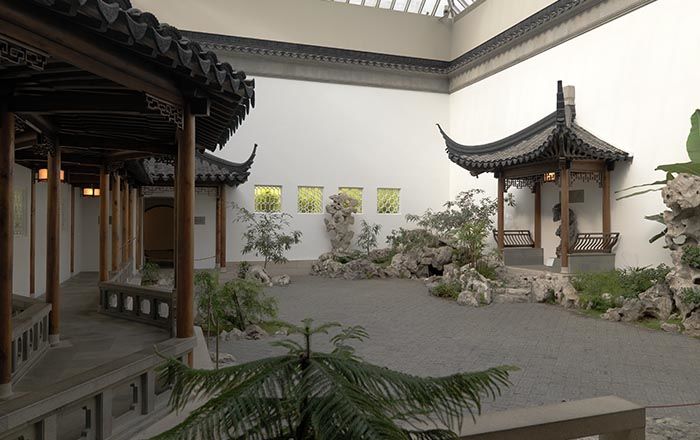Mi Fu Bowing to a Stone
Pu Ru Chinese
Not on view
The world changed around Pu Ru,brother of the last emperor of China, Pu Yi, and the most talented painter among the princes of the Qing royal family,but his values remained constant. In his painting of Mi Fu (1052–1107), the Northern Song poet, politician, painter, and connoisseur, Pu pays homage to the enduring culture of China's lettered gentlemen. The magistrate Mi Fu was known as much for his outspokenness as for his refined tastes. Pu's painting recalls Mi's visit to the garden of the governor of Wuwei (present-day Anhui), where he saw a stone of uncommon presence and wonder. To pay his respects, Mi dressed in official robes, carried his hu (an official tablet used to ensure that a lesser man's breath never fell upon the emperor), and addressed the stone as "Elder Brother Rock." Others found this laughable, but Mi answered that he bowed to the stone; he did not worship it.
In Pu Ru's painting, we see Mi Fu bowing, but there is no stone. With the classic means of the literati repertory,restraint and omission,Pu Ru evokes complex resonances. Garden stones were prized as human character was prized. Their idiosyncratic features were admired, their companionship was valued, and their challenge to the viewer's imagination was esteemed. Pu's painting clearly intimates that the beauty and stature of such stones exist primarily in the mind of the beholder and that these qualities might be preserved there, even after the stone,like the Qing dynasty,has vanished.
Due to rights restrictions, this image cannot be enlarged, viewed at full screen, or downloaded.
